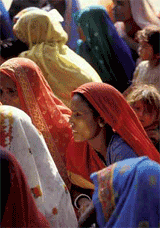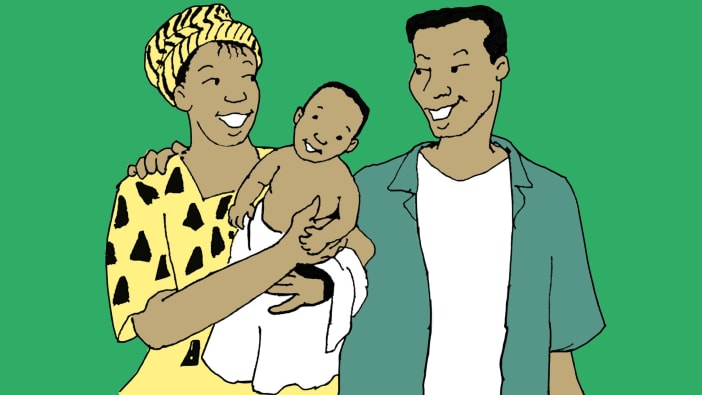There are many examples of how much women can achieve when given the opportunity. In India there are women political leaders, astronauts, athletes and writers, who are role models for young women. But poverty and social inequalities still prevent many women from fulfilling their potential. The principle of gender equality is contained in the Indian Constitution, legal system and government policies. However, there is still a wide gap between these principles and the reality of the status of women in many communities across India. This is shown by low female literacy rates and high maternal mortality rates, particularly in rural areas. Attitudes need to change at the level of the family. Parents need to ensure that girls as well as boys receive health care, education, training, opportunities and access to resources.
The low value that society places on women and girls means they are less likely than men to receive timely medical treatment or adequate nutrition. Unequal access to food, heavy work demands, and special nutritional needs such as for iron, make women and girls more vulnerable to illness, particularly anaemia. Anaemia caused by lack of iron is widespread among Indian girls and women and affects the majority of pregnant women. Anaemic and malnourished women give birth to malnourished children.
[EDITOR’S NOTE Iron can be found in red meat (especially liver), egg yolk, dark green leaves and pulses. Eating fruit rich in vitamin C, such as papaya and oranges, helps the body to absorb iron.]
Many women work twice as many hours as men because they carry out most of the household responsibilities as well as working outside their homes. Their household work is unpaid and unrecognised. Equal sharing of responsibilities for the family by men and women will help improve the status of women in India. If husbands show love and respect to their wives, and parents show they value their daughters equally to their sons, this will provide a good model for the next generation.
Joyce Vaghela works for the Community Health Department, St Stephen’s Hospital, Delhi, India.
Email: [email protected]








